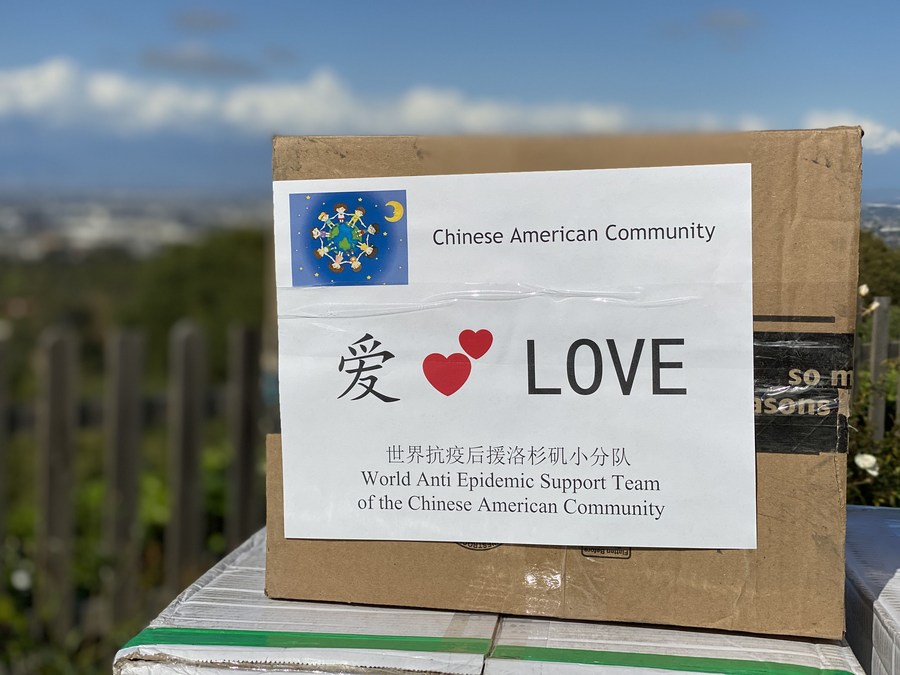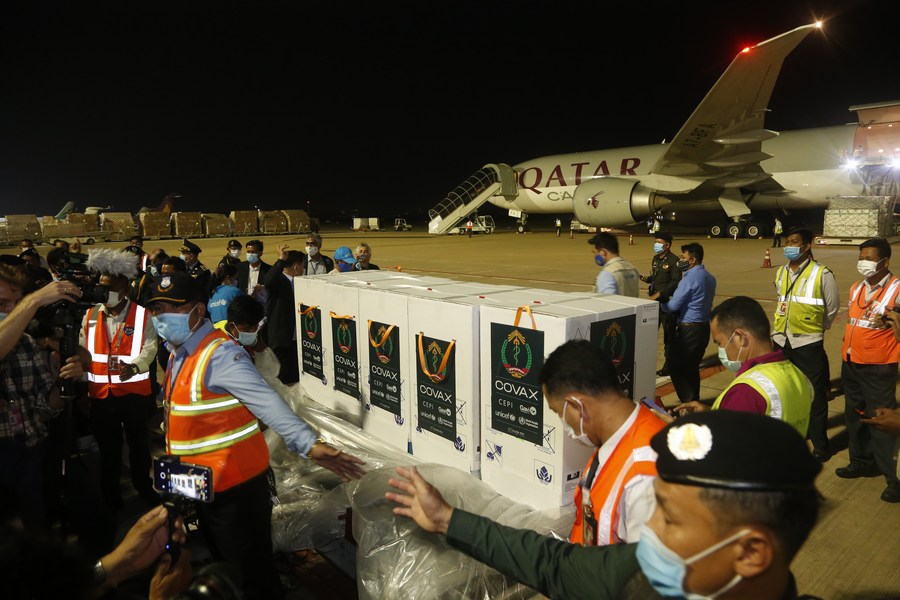
A staff member performs random sample check on inactivated COVID-19 vaccines at a packing line of the Sinovac Research & Development Co., Ltd. in Beijing, capital of China, on Dec. 23, 2020. (Xinhua/Zhang Yuwei)
- "Vaccine nationalism will backfire. Only global collaboration against the virus can lead to global recovery," said Tom Frieden, former director of the U.S. Centers for Disease Control and Prevention.
- China and the U.S. should hold on to a "four Cs" principle -- collaboration, competition, communication and coordination -- to jointly curb the spread of COVID-19 and restore normal life, said Gao Fu, head of the Chinese Center for Disease Control and Prevention (China CDC).
BEIJING, March 4 (Xinhua) -- Leading public health experts from China and the United States called on the world's two largest economies to cooperate in COVID-19 vaccination for a steady recovery at a recent webinar co-hosted by China's Tsinghua University and Washington-based think tank the Brookings Institution.
Tsinghua University President Qiu Yong and Brookings President John R. Allen delivered their opening remarks at the online event themed "Fast Track to Recovery: U.S.-China Collaboration on COVID-19 Prevention and Treatment," which was held on Monday.
Qiu said Tsinghua is looking forward to working together with Brookings and the global community to facilitate a faster recovery from the pandemic through academic exchanges and research collaboration.
"As we enter the period of vaccine distribution, it is vital that we work together to develop and form concrete policy recommendations for the next stage," he said, adding that the rapid development of several vaccines offers the promise of an effective solution to the pandemic.

Photo taken in Los Angeles County, on March 26, 2020 shows donations from the Chinese-American community in Palos Verdes in Southern California, the United States. (Photo by Maggie Wang/Xinhua)
Allen, for his part, noted that the change in the U.S. administration offers an opportunity for leaders from both sides to examine what can be done differently and set a new course for how the United States and China can address the shared threat of COVID-19.
In his eyes, when the two countries join hands to fight COVID-19, the world will have a better chance to emerge from the pandemic stronger, on the basis of a long history of the two countries working together to combat epidemics such as SARS and Ebola.
Several renowned public health experts also shared their views during the webinar, including Zhong Nanshan, an academician of the Chinese Academy of Engineering and a leading expert in China's respiratory disease research, W. Ian Lipkin, director of the Center for Infection and Immunity at the Mailman School of Public Health of Columbia University, and Gao Fu, head of the Chinese Center for Disease Control and Prevention (China CDC).
As multiple virus variants emerging around the world posed a huge challenge to the global fight against COVID-19, Zhong stressed the urgency of close collaboration between the two countries to improve COVID-19 vaccines and cocktail therapy, and prepare for a potential new wave of outbreaks in the near future.
He added that China-U.S. collaboration on COVID-19 prevention and treatment should be based on science and evidence rather than politicization.
"We need to work together in a global fashion," said Lipkin, stressing the need for a global mechanism of testing and distribution of diagnostics, drugs and vaccines.
He also suggested that the public health crisis needs more data sharing and efforts to strengthen global health institutions.

Workers unload boxes containing COVID-19 vaccines at the Phnom Penh International Airport in Phnom Penh, Cambodia, March 2, 2021. (Photo by Phearum/Xinhua)
Gao said the two countries should work together to promote COVAX, a multilateral vaccine initiative backed by the World Health Organization (WHO) aimed at equitable access to COVID-19 vaccines.
It is unlikely for the world to return to complete normality as pre-pandemic, but possible to regain relative normality by next summer if the current trends persist, he said.
He also said the two countries should hold on to a "four Cs" principle -- collaboration, competition, communication and coordination -- to jointly curb the spread of COVID-19 and restore normal life.
China and the United States could collaborate to develop global real-time surveillance and response systems to detect outbreaks, according to Tom Frieden, former director of the U.S. Centers for Disease Control and Prevention.
"Vaccine nationalism will backfire. Only global collaboration against the virus can lead to global recovery," he said.
Wu Zunyou, chief epidemiologist with China CDC, said the prospects for the anti-pandemic fight hinge on the preventive measures taken by countries, the progress of their vaccination campaigns, and vaccines' effectiveness and duration of protection.
Zhang Wenhong, head of Shanghai's COVID-19 clinical expert team, said he believes that China and the United States, as two major vaccine producers of the world, have a responsibility to help the least developed countries get access to COVID-19 vaccines.
The webinar, which was live-streamed on various social media platforms, was viewed by millions of people worldwide. ■




